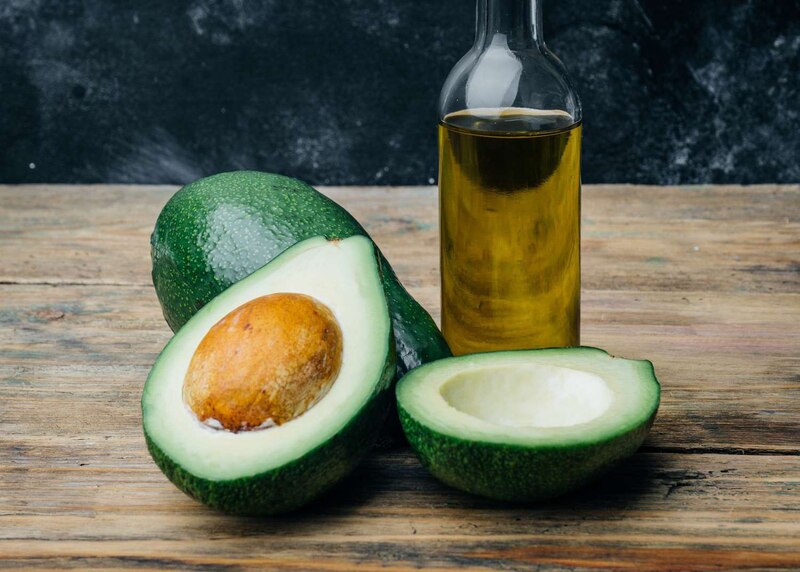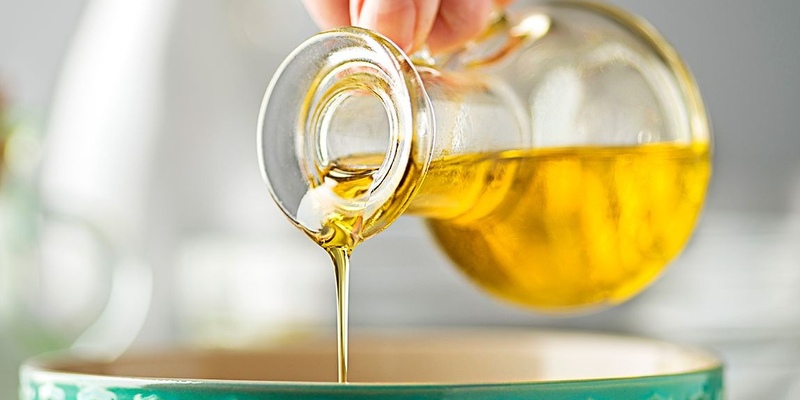Choosing the Right Cooking Oils for a Healthier You
Feb 26, 2024 By Nancy Miller
The pursuit of a healthier lifestyle pivots on the choice of cooking oils. They not only influence our meals' taste but also impact our overall well-being. This article is an exploration of healthy oil's influence on health. We will delve into three exemplary choices each for the best oil for your health and the worst.
3 Healthy Oils for Enhanced Well-Being
Your overall health significantly benefits from the contribution of healthy cooking oils. They abound in essential nutrients and beneficial fats that bolster various bodily functions. When you incorporate these oils into your diet, a positive impact on heart health can be observed. Inflammation is reduced, while an impressive array of vitamins and antioxidants are provided. Understanding the unique benefits of various oils empowers you to make informed decisions about your kitchen's ingredients.
1. Olive Oil
Olive oil, celebrated as one of the most versatile and healthy oils, earns its accolades for its monounsaturated fats. This variety is renowned for promoting cardiovascular health. Moreover, its richness in antioxidants actively combats inflammation thus fostering a robust heart. Opting for extra virgin olive oil, whether in your sautéing, salad dressings, or as a drizzle over dishes, not only contributes a rich flavor profile to your meals but also presents numerous health benefits. Olive oil, in addition to its numerous benefits, actively promotes brain health. The presence of polyphenols within it is directly linked with enhanced cognitive function, thus offering another compelling reason for you to incorporate this 'liquid gold' into your cooking rituals.
Furthermore, by consuming olive oil moderately, one can potentially guard against age-related cognitive decline. This is a crucial supplement that bolsters any diet aimed at boosting mental acuity. The potential for protecting against age-related cognitive decline is demonstrated through the moderate consumption of olive oil. Its inclusion in a brain-boosting diet renders it invaluable. The presence of polyphenols found abundantly within this 'liquid gold’, is directly tied to enhanced cognitive function. Thus, reaffirming our stance on embracing olive oil in cooking as a truly beneficial practice.
- Antioxidant Boost: Olive oil's polyphenols contribute to its antioxidant properties, protecting cells from oxidative stress.
- Culinary Versatility: Beyond health, olive oil's diverse applications in cooking make it an essential kitchen staple.
2. Avocado Oil
Avocado oil, derived from the creamy flesh of avocados is a nutrient powerhouse. It is packed with heart-healthy monounsaturated fats and vitamin E. Furthermore, providing a natural source of antioxidants. With its high smoke point, an indicator of stability under heat, it excels as an option for various cooking methods including grilling and roasting. Its mild flavor enhances the taste of dishes without overpowering them.

Avocado oil, in addition to conferring cardiovascular benefits, acts as a skin-friendly elixir. It boasts richness in Vitamin E and omega-9 fatty acids which not only nourish but also hydrate the skin. This contributes significantly towards achieving a healthy complexion. You should consider incorporating avocado oil into both your culinary and skincare routines for its holistic approach towards well-being.
- Skin Nourishment: Avocado oil's vitamin E content supports skin health, providing hydration and promoting a radiant complexion.
- Enhanced Absorption: The presence of healthy fats in avocado oil aids in the absorption of fat-soluble nutrients from other foods.
3. Coconut Oil
For its distinct flavor and myriad health benefits, coconut oil is increasingly popular. The richness in saturated fats equips coconut oil with medium-chain triglycerides (MCTs), which undergo unique body metabolism. Although it may enhance brain function, moderation remains crucial when utilizing coconut oil because of its elevated saturated fat content. By incorporating it into your diet, you not only introduce a touch of the tropics but also bolster your overall well-being.
Coconut oil, in its expansion of versatility, extends benefits to dental health as well, The lauric acid it contains showcases antimicrobial properties that enhance oral hygiene. Therefore, one should consider utilizing coconut oil for oil pulling, a natural method that not only promotes gum health but also reduces harmful bacteria within the mouth.
- Oral Hygiene Aid: Coconut oil's antimicrobial properties make it a natural and effective component for oil pulling, promoting dental health.
- Metabolism Boost: The unique MCTs in coconut oil may contribute to increased energy expenditure, supporting weight management.
3 Unhealthy Oils and Their Downsides
Conversely, certain cooking oils can detrimentally affect health. Trans fats and saturated fats in high quantities may elevate cholesterol levels, incite inflammation, and escalate the risk of cardiovascular diseases. We must comprehend these oil's harmful impacts to ensure healthier kitchen choices.
1. Soybean Oil
Processed foods commonly utilize soybean oil due to its high content of omega-6 fatty acids. Although these omega-6 fats are crucial, an imbalance in conjunction with a deficiency in omega-3s might result in inflammation. Various health issues, such as heart disease and obesity, have a confirmed association with excessive soybean oil consumption. For optimal health maintenance, it is advisable to opt for alternatives that offer a better balance of fatty acids.
Soybean oil, besides affecting health, presents environmental concerns. Its production frequently necessitates deforestation and potentially instigates habitat loss. Awareness of the ecological footprint associated with your cooking oils paves the way for a conscious, even sustainable approach toward dietary preferences.
- Environmental Impact: Soybean oil production may contribute to deforestation, emphasizing the importance of sustainable alternatives.
- Omega-3 Balance: Maintaining a balanced ratio of omega-6 to omega-3 fatty acids is crucial for inflammatory control.
2. Corn Oil
Like soybean oil, corn oil also ranks high among the culprits rich in omega-6 fatty acids. Excessive intake of these fats, without a balanced presence of omega-3s, can potentially foster inflammation and various health issues. Therefore, mindfulness regarding your diet's sources of omega-6 is crucial. Opt for cooking oils that proffer a healthier fatty acid profile.
Corn oil, beyond boasting a high omega-6 content, could potentially affect heart health.

Certain studies propose that the consumption of corn oil might sway cholesterol levels. This underscores not only the significance of moderation but also prompts consideration for other oils presenting a more favorable fatty acid composition.
- Cholesterol Consideration: The impact of corn oil on cholesterol levels underscores the need for moderation and diverse oil choices.
- Cooking Stability: Corn oil's high smoke point makes it suitable for various cooking methods, ensuring stability during heat exposure.
3. Palm Oil
The food industry commonly utilizes palm oil for its high-temperature stability, yet its use raises health concerns. Palm oil's richness in saturated fats can potentially precipitate heart disease when consumed excessively. Therefore, it is wise to consider alternative oils that boast a more favorable fat composition as they contribute to maintaining a heart-healthy diet.
Palm oil cultivation, in its expansion, often engenders environmental challenges such as deforestation, destruction of habitats, and loss of biodiversity. Consumers who are aware of the associated environmental impact can align their choices with personal health and global sustainability.
- Environmental Consequences: Palm oil production is linked to deforestation and biodiversity loss, prompting a need for sustainable alternatives.
- Ingredient Awareness: Checking food labels for palm oil content enables informed choices, aligning with health and environmental considerations.
Conclusion
Selecting the appropriate cooking oils constitutes a fundamental stride toward adopting a healthier lifestyle. You must harness the numerous benefits offered by oils such as olive, avocado, and coconut. However, potential harm can be posed by other variants like soybean, corn, and palm oils. Hence, caution should always prevail in such choices. Your culinary decisions transcend mere taste enhancement for your meals. They actively contribute to your long-term well-being, an important facet worthy of meticulous consideration in every kitchen action you undertake.

Organic Foods: Everything You Need to Know

Retinol Safety for Summertime Use - How Do Derms Use It

How Does One Choose Between an Essence and a Toner?

All You Need to Know About 5 Best Single-Dumbbell Exercises for Building Explosive Strength

Unveiling Cranberry Sauce's Health Benefits

Choosing the Right Cooking Oils for a Healthier You

Top 5 Anti-Ageing Concerns and Signs of Ageing - How To Address Them


